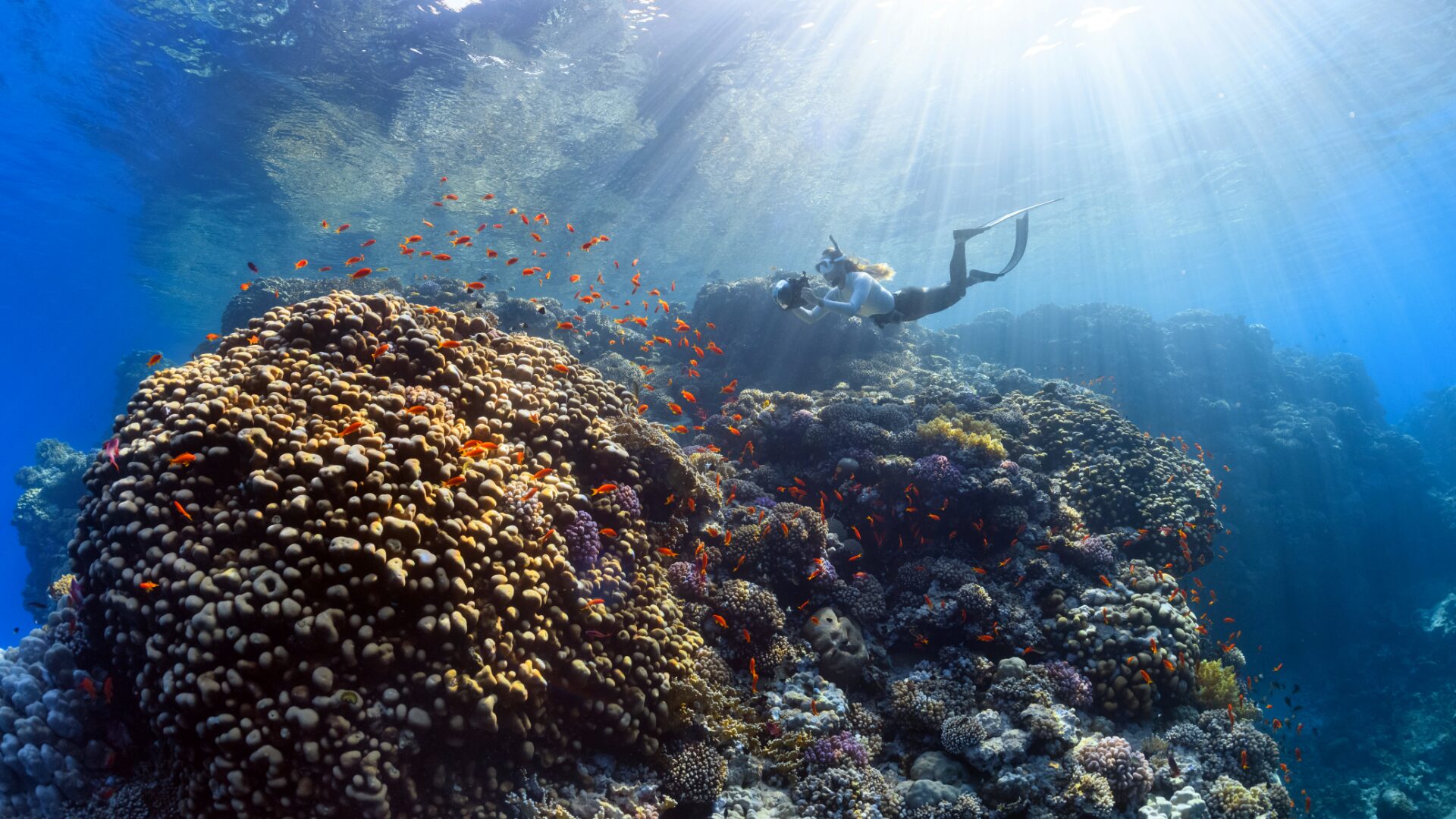The High Seas Treaty
Perhaps the largest milestone since last year’s World Oceans Day is the signing of the UN High Seas Treaty in March.
Two long decades of negotiations went into ensuring that the high seas – which make up 60 percent of our planet’s oceans – are protected from exploitation.
A total of 193 countries agreed to create stricter laws that prevent overfishing, prohibit pollution, limit deep-sea mining, and protect large ocean species like dolphins, whales, and sharks in the high seas.
With careful and proper implementation, the High Seas Treaty could successfully prevent the collapse of the undersea ecosystem, restore the balance of fish supplies globally, and help to mitigate climate change.
Coral reef restoration projects
Coral reefs may make up just 1 percent of our oceans, but it’s a fact that all marine life depends on them. Current threats to these ecosystems include warming ocean temperatures, increasing ocean acidity, and overfishing practices.
At CO27, nations pledged to prevent the collapse of these unique and fragile ecosystems.
The Global Fund for Coral Reefs (GFCR) became a UNESCO-recognised organisation and received $187 million USD in funding, which will help to accelerate projects that preserve current reefs and boost the health of struggling reefs.
A key research focus is being placed on heat-resistant corals found in Egypt’s Red Sea. Transferring these resilient species to areas that experience mass coral bleaching, such as the Great Barrier Reef, could be the answer to revitalising and maintaining these important undersea gardens.
Their boosted health, through reef restoration initiatives and increased protection, will create a knock-on effect that supports the health of all oceans.
Developments in microplastic clean-ups
Microplastics might have only become a cause for public concern in recent years, but they’ve been polluting our planet for decades. Ridding our environment of these tiny, invisible-to-the-eye pollutants won’t be easy.
The good news is, new clean-up technologies are being tested and trialled every day. Creative innovation is at the heart of these endeavours, so let’s take a look.
In one project, a specialised magnetic powder has been developed specifically for absorbing microplastics before they can toxify waterways, harm sea life, and reportedly even end up in human blood.
In another, a novel mechanism that uses high-frequency sound waves to direct and filter microplastics from washing machines and factories to prevent the discharge of these particles to the planet has proven successful.
Other similar projects, such as microplastic-eating robo-fish are being trialled in rivers and other waterways. Perhaps best of all, it appears that nature could be finding its own way to help deal with our plastic pollution problem.
Plastic-eating bacteria have been discovered by scientists at the Royal Netherlands Institute for Sea Research. It’s been estimated that bacteria are capable of eliminating at least one per cent of the plastics plaguing our oceans every year – but scientists are confident the amount could be even higher.
All in all, we’ll need to make a collaborative and concerted effort to undo the damage we’ve inflicted upon our oceans across the last century. It won’t be easy, however, there are many incredible people dedicating their lives to get the job done.
And what better time to celebrate these wins than on June 8th, World Oceans Day!





















